
Topical SEO ensures that your website's content matches the needs of your target audience. Users who find content relevant to their queries have a more satisfying and informative experience on your site.
Consistently producing topically relevant content establishes your website as an authority in your field or niche. This can attract organic traffic and help you earn backlinks from other reputable sources, further solidifying your authority.
In this article, I will explain topical relevance in SEO and discuss the five smart ways to improve your website’s authority by leveraging topical search engine optimization.
What is Topical Relevance in SEO?
Topical relevance in search engine optimization is the art of creating and publishing content around a particular topic to increase your domain relevance for that topic.
For instance, ActiveCampaign is a site that has a lot of topical relevance in the email marketing space. This is because they're very focused on producing high-quality content that is relevant to that niche on topics such as "Best Email Marketing Tools," "Email Lead Generation Examples," etc.
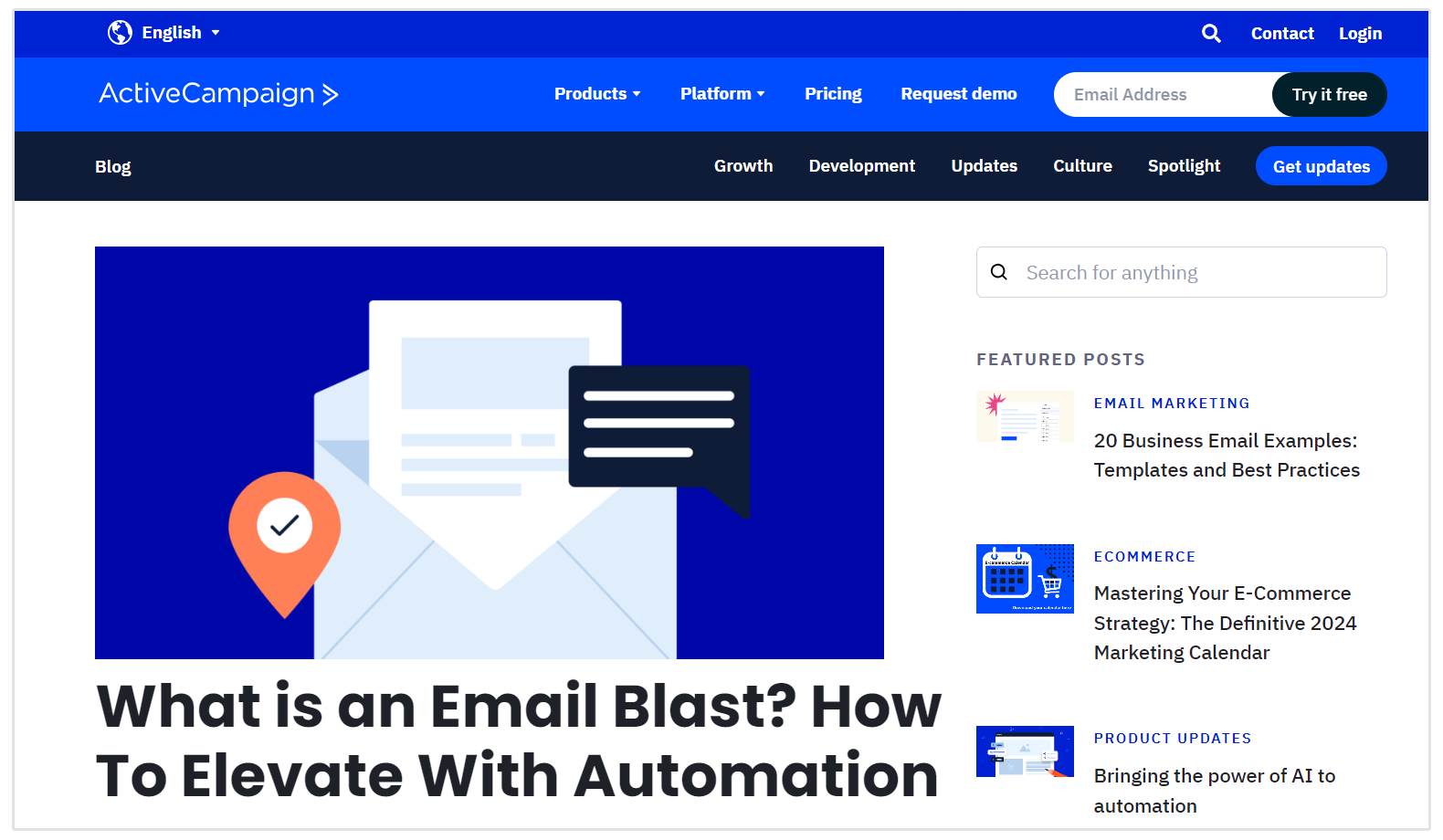
Topically relevant content in SEO should meet the following criteria:
- The information provided should be directly related to the target topic.
- It should be high-quality, unique, comprehensive, and well-structured.
- The target keywords and their LSI variants should be scattered throughout the content.
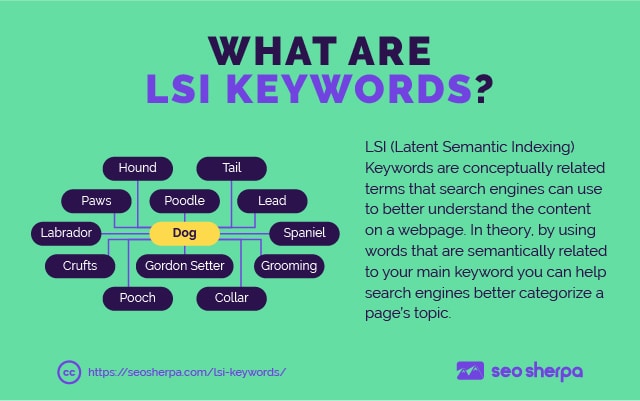
When search engines determine that your content meets these criteria, they are more likely to rank your pages higher in search results.
It's essential to use the target keywords strategically within the content to establish topical relevance. This includes using your primary keyphrase and their LSI variants in the page title, heading tags, body text, and meta tags.
Why is Topical Relevance Important for SEO?
Topical relevance is crucial for SEO for several reasons:
Improved Rankings
Google's mission is to organize the world's information and provide users the closest matching web pages depending on their search query.
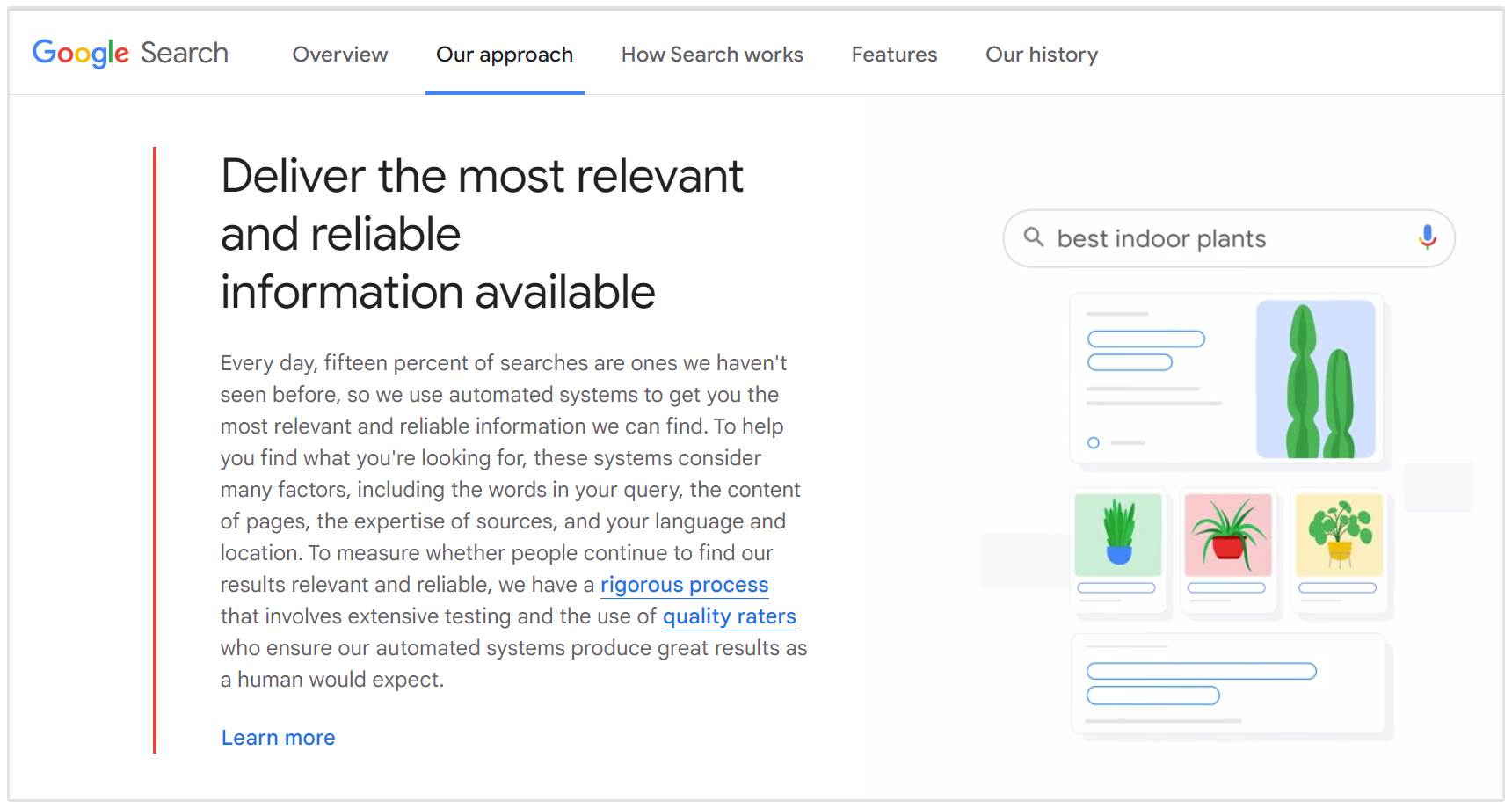
Topically relevant content is more likely to rank your pages higher in search results for specific keywords or queries.
Better User Experience
Topically relevant content fulfills the user's search intent, creating a better user experience. Users are more likely to find what they want, reducing bounce rates and increasing engagement.
Authority Building
Over time, consistently creating content that aligns with your niche establishes your website as an authoritative source. This reputation increases organic traffic and encourages reputable websites to link to yours, improving your backlink profile and domain authority.
The more niche relevant backlinks pointing to your website, the more Google and other search engines will view you as an authority in your market.
Semantic SEO
Search engines consider the entire spectrum of content on a site. Covering various aspects of a topic makes your website more likely to rank for a broader range of keywords and phrases, increasing your overall visibility.
Long-Term SEO Success
Topical relevance is a sustainable SEO strategy. As search engines evolve, they prioritize relevant content, making it a profitable long-term investment especially if you can focus on producing evergreen content.

How to Improve Your Site’s Topical Relevance
Here are the five best ways to improve your site’s niche authority:
Focus on One Topic/Niche
Focusing on one specific topic or niche is a powerful strategy to enhance topical relevance on your website. Narrowing your content's scope to a particular subject allows you to delve deep into that area, establishing your expertise and authority.
By consistently creating content related to your business niche, you reinforce your website's topical relevance in the eyes of search engines.
It becomes clearer to search engine algorithms that your site specializes in a particular area.
This, in turn, increases the likelihood of your content ranking higher in search results when users search for keywords related to your niche.
Additionally, aligning your chosen niche with relevant keywords and providing comprehensive coverage of the topic helps ensure that your content precisely matches what your target audience is searching for.
This alignment attracts organic traffic and keeps visitors engaged, as they find exactly what they came for.
For example, let's say you want to start your own fitness blog. Instead of targeting "fitness", you can narrow its focus to "running fitness."
This specialized niche could involve creating content centered around fitness routines, nutrition tips, and gear recommendations for individuals who are interested in road running, track, trail running, etc..
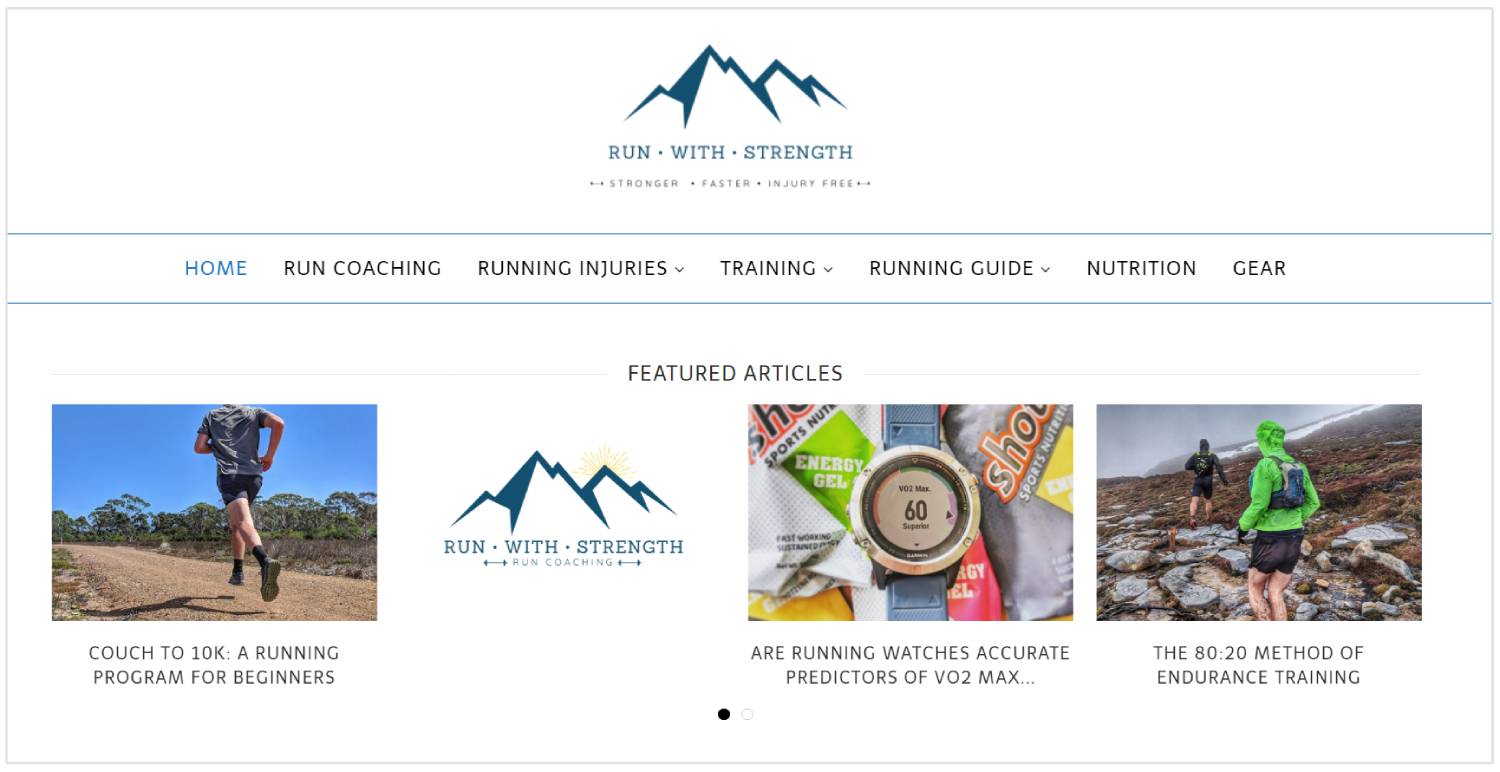
Create Topic Clusters
Creating topic clusters, also referred to as SEO content silos, is a strategic approach to enhance topical relevance and SEO performance.
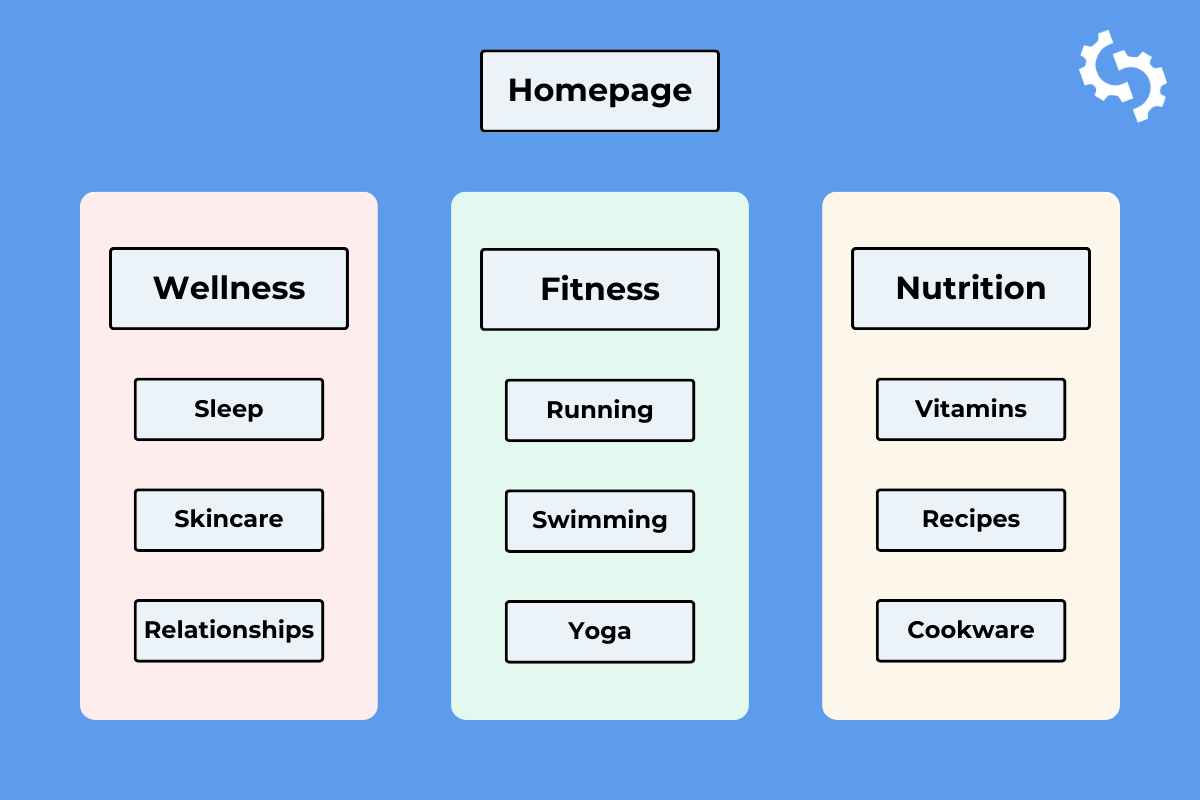
In this strategy, you start with a pillar post or cornerstone piece of content that comprehensively covers a broad topic. This pillar content serves as the core, and then you create related subtopics or cluster content around it, all internally linked to the pillar content.
For example, let’s imagine you run a travel blog on adventure travel desitinations.
Your pillar content could be an extensive guide on "Adventure Travel Destinations Around the World."
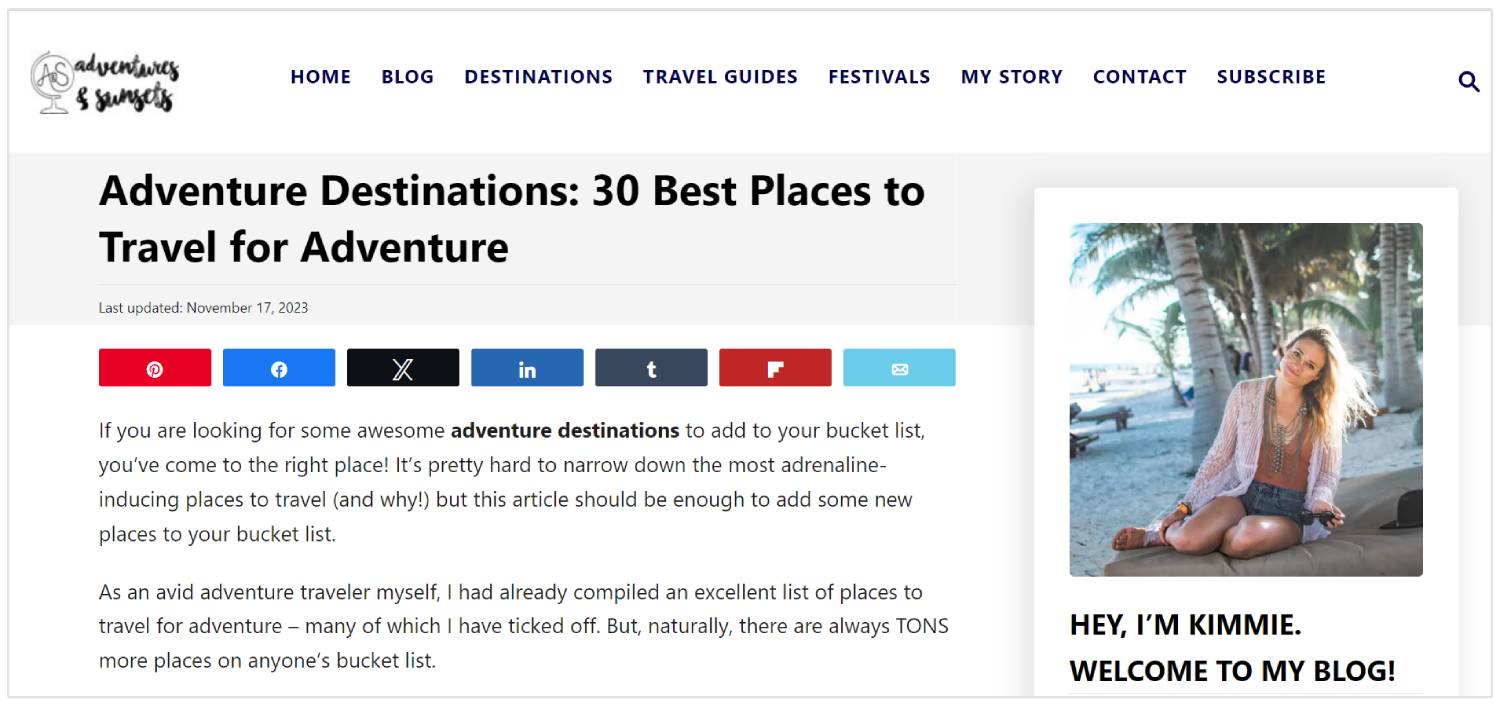
Within this guide, you create subtopics or cluster content dedicated to specific adventure activities or regions, such as "Hiking in the Swiss Alps," "Scuba Diving in the Great Barrier Reef," or "Rock Climbing in Utah's National Parks."
Each subtopic offers in-depth information, linking to your main pillar content on "Adventure Travel Destinations Around the World."
This interconnected structure makes it easier for users to navigate your site and demonstrates topical relevance to search engines, potentially boosting your search rankings for related keywords.
Topical Keyword Research
Topical keyword research is fundamental in optimizing your content for search engines while ensuring it aligns with your chosen niche or topic. Instead of targeting individual keywords, you should include the broader topics your target customers are interested in within your niche.
Here's how to conduct topical keyword research:
Start by defining your niche.
For instance, if you own a toy shop selling a wide range of toys for children of all ages, your niche will be "Toy Retail."
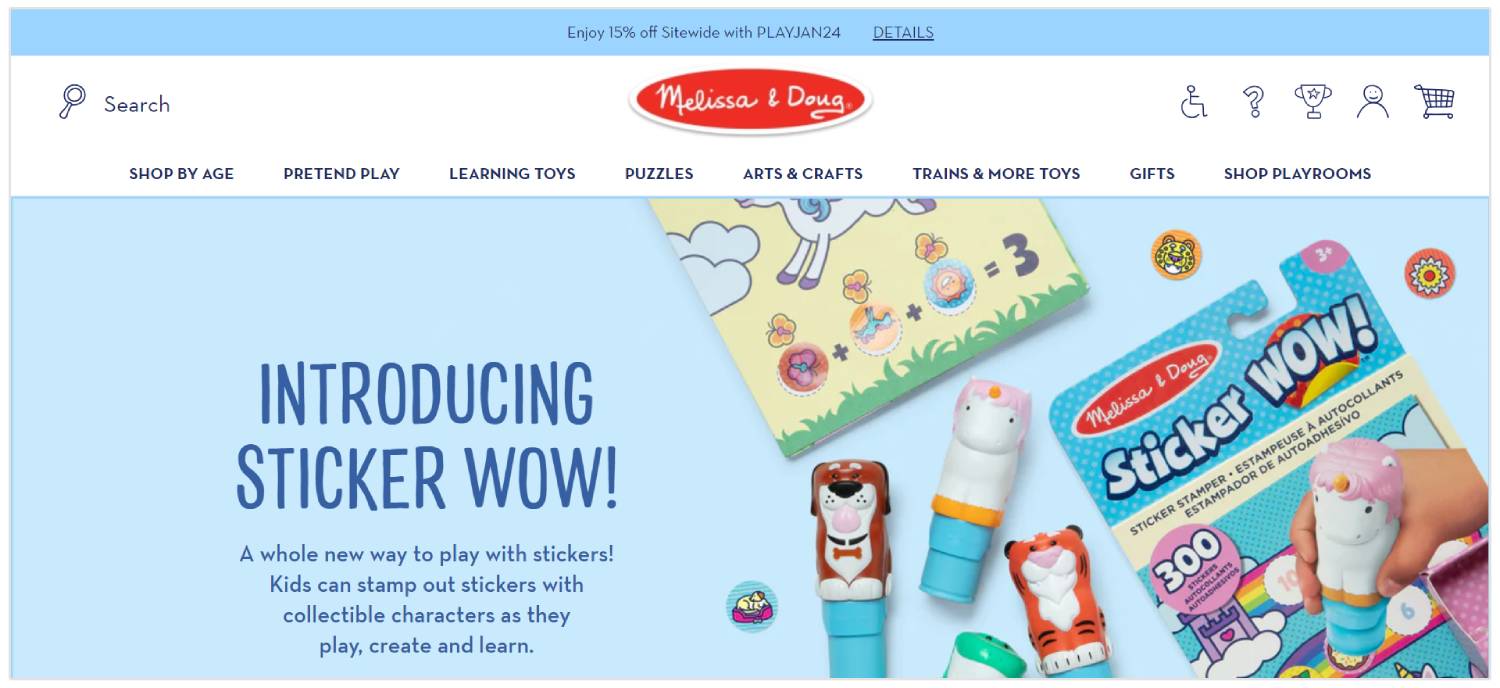
Identify the themes or broad topics within the toy niche. These could include "Educational Toys," "Outdoor Play Equipment," "Board Games," and "Collectible Action Figures."
Research keywords and key phrases related to each broad topic. Use keyword research tools to find relevant keywords.
For instance, for the "Educational Toys" topic you might discover keywords like "STEM toys for kids" or "educational and learning toys."
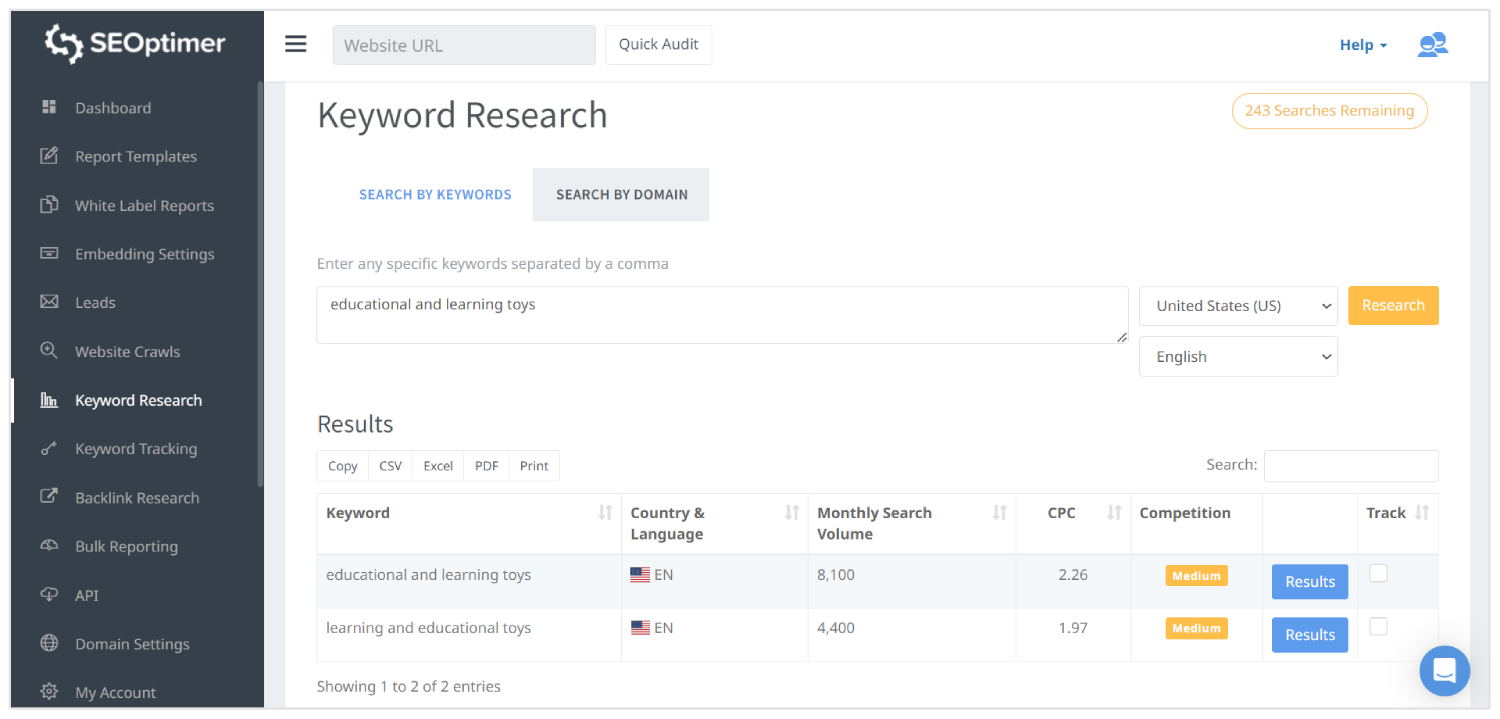
The SEOptimer keyword research tool helps you find the difficulty level of each target keyword. This feature assists in identifying keywords with lower competition, making it easier to rank for them.
Analyze the content of competitors in the toy retail space. Identify keywords and topics that they are targeting successfully.
For example, if a competitor ranks well for "Best educational toys for toddlers," consider creating similar content incorporating semantic keywords and phrases related to toys, children, and play.
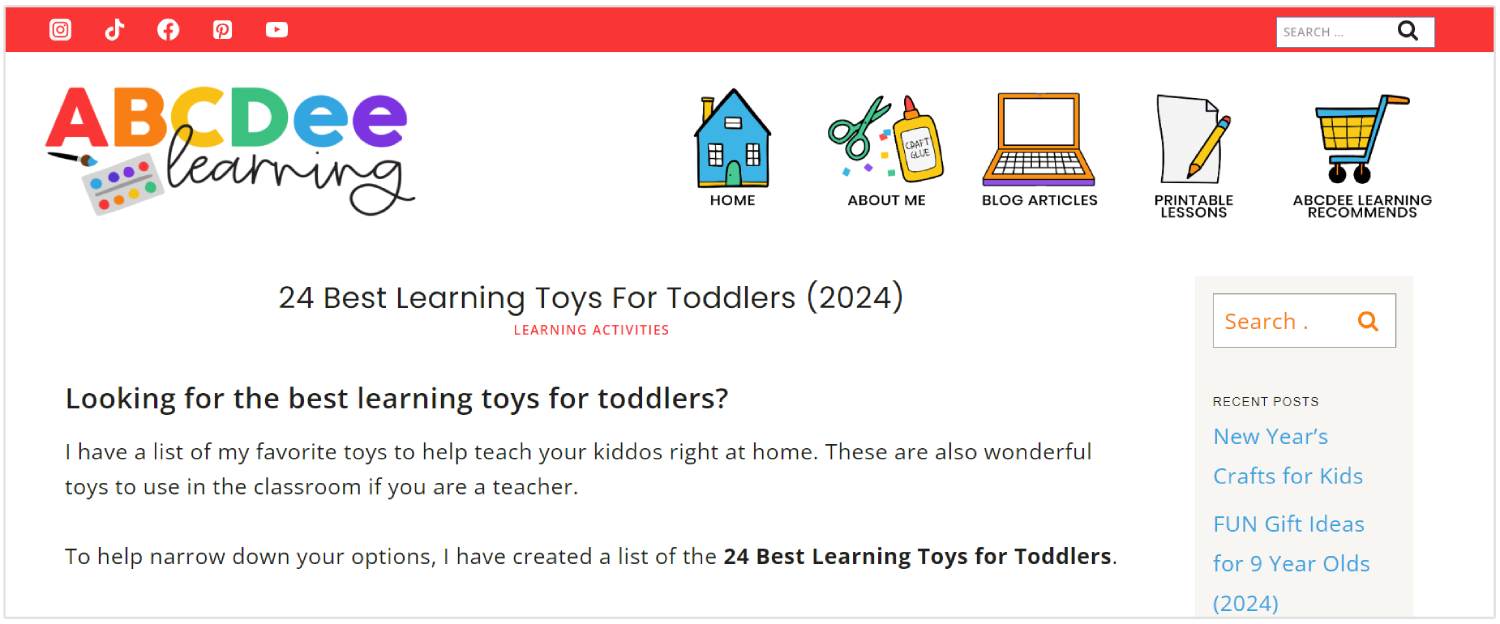
For instance, include synonyms like "kids' playthings," "children's play," or "playroom essentials."
Finally, understand the search intent behind toy-related queries. Some users may seek product recommendations, while others want educational insights or DIY toy projects. Tailor your keyword research to match these intents.
Focus on Long-Tail Keywords
Look for long-tail keyphrases that are specific to each broad topic.
Taking the example of the toy shop above, long-tail keywords could include "Best outdoor playsets for small yards" under "Outdoor Play Equipment" or "Top-rated board games for family game night" under "Board Games."
Long-tail keywords often have less competition, making it easier for the toy shop to rank higher in search results.
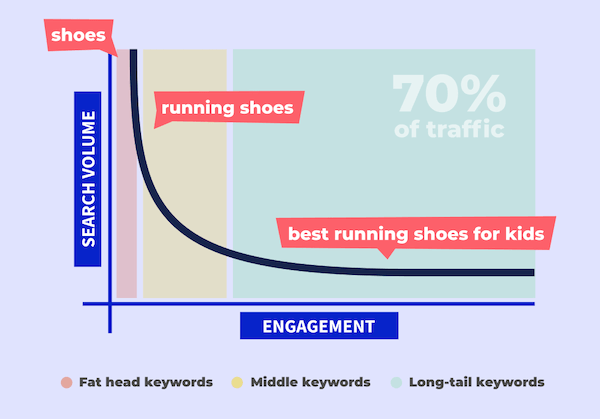
Image soruce: WordStream
These specific keywords also align more closely with what potential buyers are searching for, increasing the chances of attracting highly relevant traffic.
By targeting long-tail keywords related to specific toy categories or age groups, your toy shop can attract users who are more likely to purchase. For example, a parent searching for "educational STEM toys for 5-year-olds" is likely in the buying mindset and may convert into a customer.
Each long-tail keyword can serve as inspiration for creating content. You can create detailed product guides, reviews, and blog posts.
Also, if your toy shop has physical locations, you can incorporate long-tail keywords with local modifiers, such as "best toy store in [city]" or "top-rated toy shop in [city]." This enhances local SEO efforts and helps attract nearby customers.
Answer Frequently Asked Questions in Your Niche
Start by identifying your niche or industry's most common questions and inquiries. These questions often represent your target audience's pain points or information needs.
The key is to develop detailed and informative answers to these questions by answering all potential questions the reader might have.
Your answers should be well-researched and provide valuable insights, guidance, and solutions. Consider incorporating images or infographics to enhance the clarity of your responses.
Also, create dedicated FAQ sections on your website or blog. Organize these questions into categories or topics for easy navigation and accessiblility.
Caraway is an online store specialzing in ceramic cookware. Their FAQ page is filled with questions that prospective or old customers might have regarding ceramic cookware.
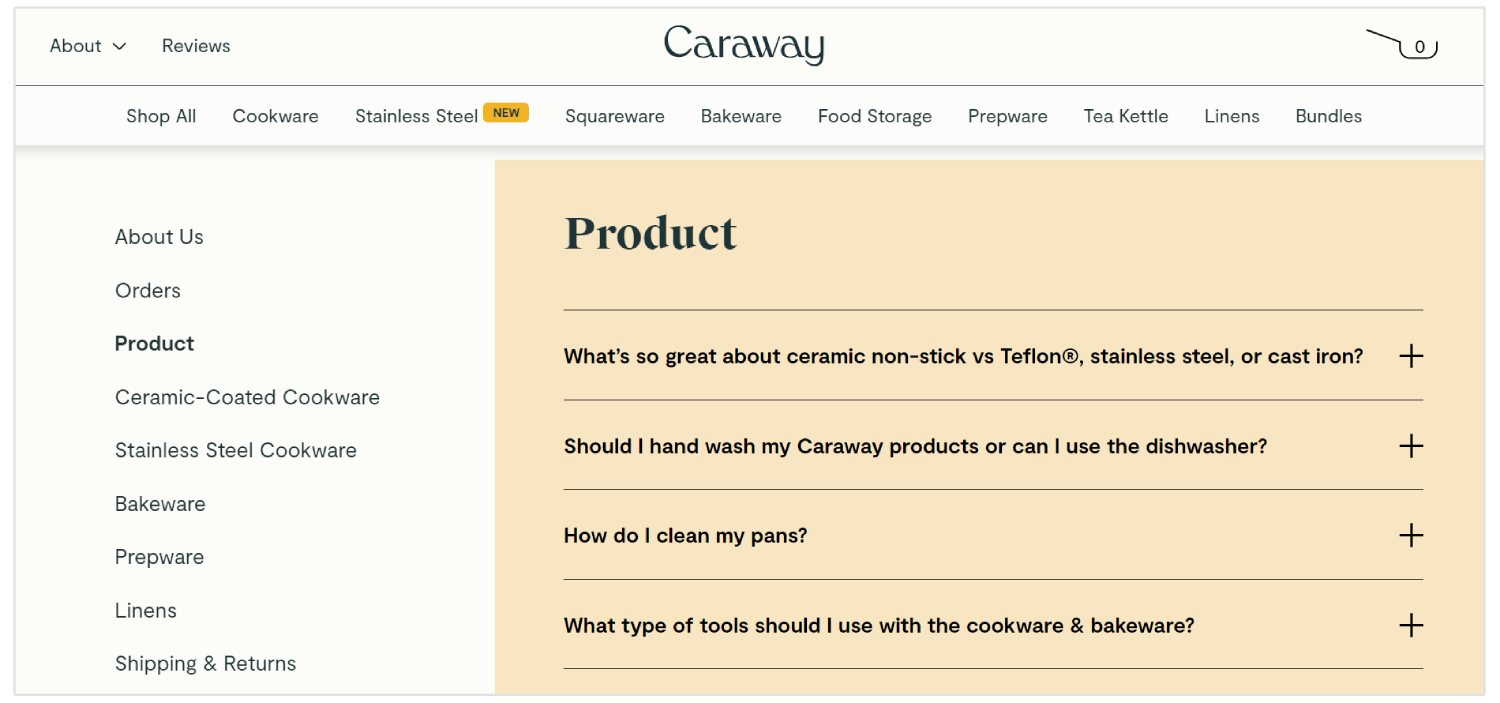
Try to create a dedicated page or blog post where you answer each FAQ.
Another strategy is to explore relevant forums, online communities, and social media platforms where people discuss topics related to your niche. Take note of the questions users frequently ask. These platforms can serve as a rich source of real-world questions to address on your website.
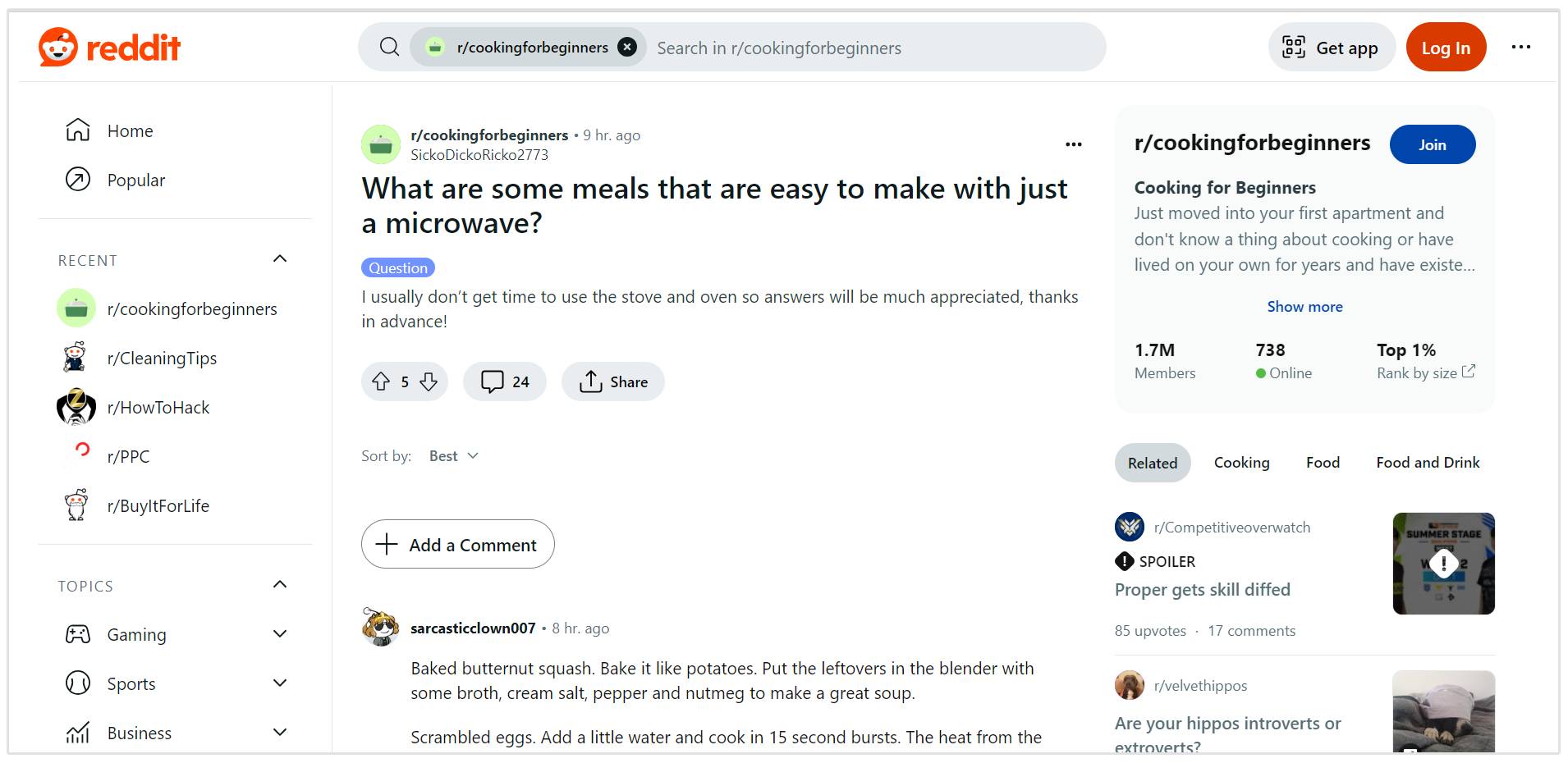
Finally, utilize Google's "People Also Ask" feature.
When you search for a particular keyword, Google often provides a list of related queries that users commonly ask. Incorporate these keywords into your FAQ content and provide concise yet informative answers.
Here is an example of the People Ask Ask (PAA) box for the query “Where to do hiking?”
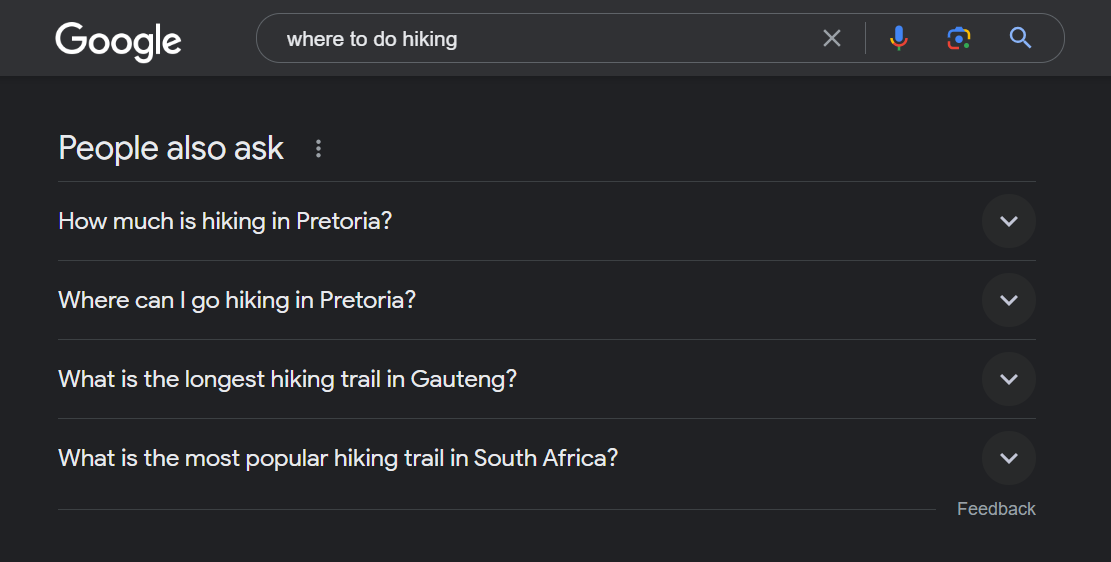
By leveraging the "People Also Ask" feature, you can discover relevant questions that users are actively searching for, leading to the creation of content that aligns with their interests and needs.
Conclusion
Achieving and maintaining topical relevance is crucial for establishing your website's authority.
By adhering to topically aligned content and user-focused strategies, you can acquire lots of organic traffic to your website.
In an era where information is abundant, topically relevant content not only captivates search engine algorithms but, more importantly, attracts your audience. It positions your website as an indispensable resource, cultivates trust, and drives organic traffic.
By continually adapting and refining your approach, you can harness the power of topical relevance to elevate your site's authority and remain at the forefront of your industry.










